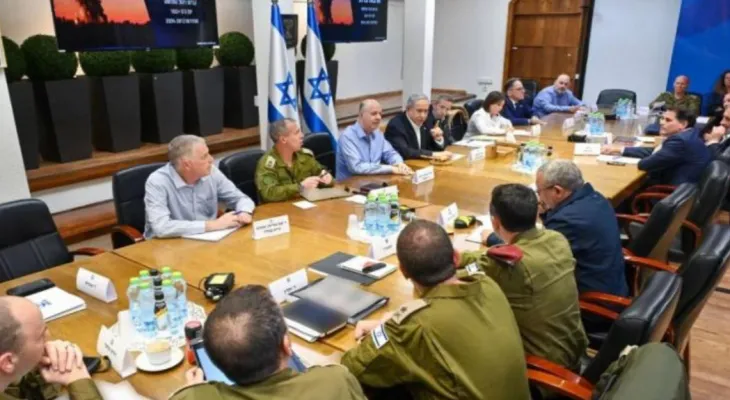Search here
Newspaper
Search here

Arab Canada News
News

Published: July 7, 2025
Simultaneously with the start of indirect negotiations between Hamas and Israel in the Qatari capital Doha concerning a potential ceasefire, leaks from the Israeli security cabinet meetings on Saturday evening revealed intense tensions within the political and security leadership, as Prime Minister Benjamin Netanyahu instructed Chief of Staff Eyal Zamir to prepare a comprehensive plan for a full invasion of the Gaza Strip, to be presented after his return from a visit to Washington, which is expected to witness the announcement of a potential ceasefire agreement.
Shouting, disputes, and banging on the table
According to sources close to Netanyahu, the meeting witnessed violent disputes, shouting, and banging on the table, with clear support from the ministers of religious Zionism, Itamar Ben Gvir and Bezalel Smotrich, for Netanyahu’s position, who appeared determined to escalate military action.
Analyses varied regarding the motives behind the leaks, with some viewing it as an attempt to pressure Hamas, while others saw it as a response to previous leaks about the army's reservations regarding the invasion plans.
Intertwined goals behind the threat
According to observers’ estimates, Netanyahu seeks to achieve several intertwined goals simultaneously, including pressuring Hamas to retract its demands for a permanent ceasefire, maintaining the support of his far-right allies, avoiding accusations from the opposition of military negligence or political failure, and presenting himself to U.S. President Donald Trump as a strong leader capable of imposing on-ground realities to achieve peace.
Debate within the security room
During the discussion, Netanyahu emphasized the necessity of laying out a plan for evacuating civilians, asserting that he would not allow Hamas to remain in Gaza under any circumstances, while Chief of Staff Zamir warned of the dangers of sinking into direct military rule, questioning who would govern two million people living in poverty and anger, adding that the plan would cost Israel a heavy economic and social price, also warning of the loss of field control.
Nevertheless, Zamir confirmed that the army is ready to implement any political directive despite his reservations.
Internal pressures and criticisms
Criticism did not stop at the military establishment, as Smotrich directed dual criticisms, accusing the Chief of Staff of not implementing the decisions of the political leadership and accusing Netanyahu of being unable to impose his authority over the security apparatuses, also hinting that the humanitarian situation is being exploited to introduce aid that reaches Hamas and is used for military purposes, viewing this as a failure in management and leadership.
The army seeks a significant victory
On the other hand, the army considers that it has achieved sufficient operational objectives and believes that the continuation of the war could lead to a long depletion, but Netanyahu rejects this assessment for fear of bearing political responsibility for the outcomes amid a growing sense of frustration within the army ranks due to ongoing losses.
The fate of these plans remains contingent on the results of the ongoing negotiations in Doha and the ability of the mediators to reach an agreement that stops the escalation while the sector endures one of the worst humanitarian and political crises in decades.
Comments